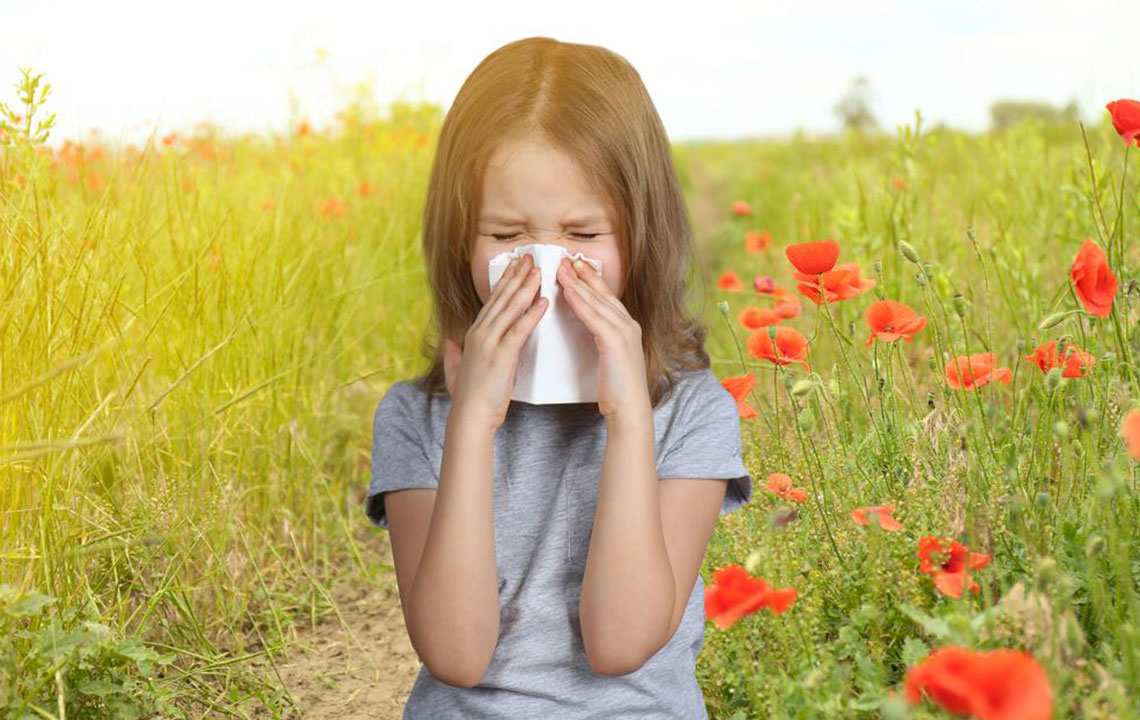Best Seasonal Allergy Medicines to Keep Allergies at Bay
Many people love the change of seasons, whether it’s spring or autumn. However, if you experience the changing seasons as days of sneezing and watery eyes, you may have seasonal allergies. Seasonal allergies are also called hay fever or allergic rhinitis. It is an immune response that primarily affects the nasal cavity and the eyes.
The symptoms of seasonal allergies are a runny nose, increased mucus production, sneezing, and coughing. Redness around the face, swelling of the nose and watery eyes are also noticed in some people.
Allergy-causing allergens
Seasonal allergies are inflammatory. The immune system reacts to particles present in the air and triggers an inflammatory process.

The common allergens involved in seasonal allergies are flower pollen, wood pollen, and grass pollen.
Most of the allergens that trigger seasonal allergies are light pollen from trees, weeds, and grass. Heavier pollen from insect-pollinated plants won’t stay airborne for very long. Hence, seasonal allergies are more common in spring, summer, and autumn and less common in winter.
Symptoms of Seasonal Allergies
Seasonal allergies are also called allergic rhinitis; it affects the nose and nasal passage.
- Rhinorrhea (excessive nasal discharge)
- Itching
- Sneezing fits
- Swelling of the nose
- Nasal congestion and obstruction
- Redness of the eyes and conjunctiva
- Ear congestion
- Rarer symptoms of allergic rhinitis are coughing, headache, Shortness of breath, and wheezing. In some very persistent cases of seasonal allergies, there may be secondary infections of the sinuses and throat.
The best seasonal allergy medicine will aim to relieve these symptoms.
Causes of Seasonal Allergies
Seasonal allergies occur when your immune system identifies an outside substance as harmful. It immediately triggers a response to it. The immune response accounts for all the major symptoms of allergic rhinitis.
The major chemical released in this immune response is Histamine. The best seasonal allergy medicine will work on limiting the production and effects of histamine. However, the allergens, the substance that triggers an allergic reaction are explained based on seasons as below:
- Spring allergens: Tree pollen causes most seasonal allergies in the spring. Most common tree pollen allergens come from birch, cedar, willow, poplar, and alder.
- Summer allergens: Grass and grass pollen cause summer hay fever. The cutting of grass in the summer is a potent trigger for allergies.
- Autumn allergens: In autumn the allergies are commonly triggered by weeds such as ragweed which flourish during the autumn months. The symptoms of autumn allergies are the most severe among the seasonal allergies.
- Winter allergens: Apart from this, pollen levels in the air are highest in the morning and after rainfall. Pollen counts surgeon days that are windy and warm.
Treatment: Best Seasonal Allergy Medicine and Home Remedies
Seasonal allergies can’t be cured completely, but the symptoms can be managed. A combination of the best seasonal allergy medicine and lifestyle changes is the best course of action.
The Best Seasonal Allergy Medicine
- Best seasonal allergy medicines that can be either prescription-only or over-the-counter.
- The primary treatment for allergies is antihistamines. Since histamine mediates the allergic response, the medicine will reduce the production and effects of histamine in the body. Antihistamines are often available over-the-counter and are easy to find. Common antihistamine medications are cetirizine and loratadine. These can be taken orally as pills, or through nasal sprays and eye drops. Antihistamines may be the best seasonal allergy medicine, but they can cause side effects like drowsiness and an inability to concentrate. This can hamper your ability to do routine tasks.
- Decongestants are also great for allergies where there is significant nasal congestion. It is the best seasonal allergy medicine for clearing the nasal cavity of mucus and debris. Easily available decongestants are pseudoephedrine and phenylephrine. Nasal decongestants can only be used for a few days at a time because they can cause rebound symptoms.
- In severe cases, the best seasonal allergy medicine is intranasal corticosteroids. They help to reduce the signs and symptoms of inflammation in a relatively short period. However, corticosteroids cannot be taken for an extended period due to undesirable side effects.
- The best seasonal allergy medicine is often a combination of an antihistamine and a decongestant. These combinations are the best seasonal allergy medicine since they tackle almost all the symptoms of seasonal allergies. Hence, instead of taking multiple medications, you can take just one.
Home Remedies for Seasonal Allergies
- Apart from taking the best seasonal allergy medicine, it is also important to make certain lifestyle changes. Try to identify and avoid your allergens as much as possible. Avoid going on on windy days. Change your clothes and bathe as soon as you enter from the outside to wash away any debris.
- Using a saline nasal wash is recommended to wash out any allergens that may be in the nose or nasal mucus. Salt is also antibacterial which can prevent secondary infections. Eat foods rich in flavonoids such as vegetables as well as foods rich in vitamin C such as oranges and other citrus fruits. These compounds have antihistamine properties which will help.
- Seasonal allergies are an everyday nuisance for many people. Stop sneezing your way through life and take the best seasonal allergy medicine so that you can enjoy the outdoors.
- Combine the best seasonal allergy medicine with home remedies and lifestyle changes. You can make the most out of the beautiful weather outside when you’re free from allergies.

